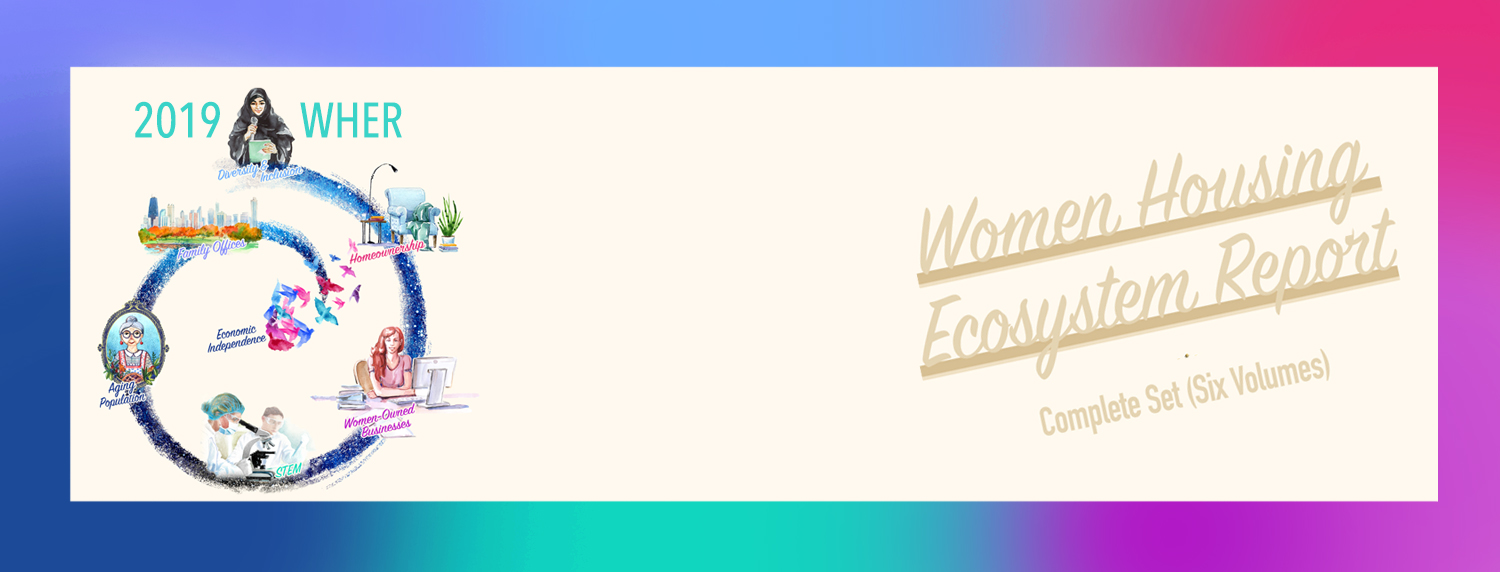The National Association of Women in Real Estate Businesses (NAWRB) has launched a national Certified Delegate Spokeswoman Program. Industry veterans specializing in the housing ecosystem will bring laser focus to women’s economic issues with one, unified voice. The nature of the program will perpetuate nationwide collaboration to mitigate gender-based imbalances in the workforce and increase small business sustainability, especially women-owned.
Continue reading

Know an Incredible Woman Preserving the
Quality of Life During COVID-19?
Submit your story today!
Read More

Consulting & Branding Opportunities
Grant your business access to insider,
proven knowledge to improve the quality of your procured
services and maximize business performance.

If you need D&I
Contact Us!
A Team Focused on Bring Diversity and Inclusion to Every Level
Learn More

#1 Top Real Estate Influencer
Desiree Patno
Diversity & Inclusion, Quality of Life, Know the Rules of the Game ®
Your Next Event
Grow Your Business
NAWRB: An SBA Resource
NAWRB is listed as a women-owned business resource for the SBA.
Check It Out
NAWRB Aging Population
Help Protect Elders
from Financial Abuse
Over $36.5 billion a year is lost annually in the U.S.
Prevent Financial Abuse

Women's Homeownership:
Dream. Stability. Sanctuary.
Life often presents us
with unplanned disruptions.

AI Technology
with
a Human Touch
Is
The Perfect Balance


NAWRB Women's Global Resource Center
A women’s depository for vendors & clients to grow their diverse spend & increase women’s employment at all levels within the housing ecosystem.

Daily Archives: April 6, 2017
Women’s Retirement: An Uphill Battle
Hindsight is 20/20, meaning that it is easier to examine—and determine the correct course of action in—a situation or event after it has taken place. This phrase emphasizes the importance of having foresight, to ensure that rather than lament the mistakes of the past; we make the correct decisions today to create a better tomorrow.
The lessons of hindsight in regards to women continue to be largely overlooked to this day. Women professionals have continually earned less, had less representation and possessed fewer opportunities than men. Currently, women earn a mere 79 cents for every dollar a man earns, translating to a formidable 27 percent gender wage gap. And for African American women and Latinas, who earn 60 and 55 cents for every man’s dollar respectively, the situation is even harder. Do women get to pay less for food and other necessities than men? No, they are forced to live under the same demands and circumstances with fewer means and resources.
A Win for Women-Owned Small Businesses: Sole Source Authority
 Enacted by section 8(m) of the Small Business Act, the Women-Owned Small Business (WOSB) Program authorizes Federal contracting officers to limit competition for Federal contracts to qualified Women-Owned Small Businesses (WOSBs) or Economically Disadvantaged Women-Owned Small Businesses (EDWOSBs), in select industries.
Enacted by section 8(m) of the Small Business Act, the Women-Owned Small Business (WOSB) Program authorizes Federal contracting officers to limit competition for Federal contracts to qualified Women-Owned Small Businesses (WOSBs) or Economically Disadvantaged Women-Owned Small Businesses (EDWOSBs), in select industries.
Sole source authority refers to the power of contracting officers to award Federal contracts directly to individuals or companies without having to consider other firms. This expedites the contracting process by eliminating its competitive nature.
Hotel Figueroa – Women Finance Hotel for Professional Women
The idea of a business that is available exclusively to a select group of people connotes discrimination and injustice; the story of the Figueroa Hotel (Fig) is interesting, because it practiced exclusivity for a progressive and meaningful purpose.
For the past half century, it has been common to see women expanding into and thriving in all career avenues; but have you considered the beginnings of this progress? Were women a part of the workforce 100 years ago? They were. Some of them even held important positions.
The Untapped Potential of Black-Owned Businesses
The latest research from the Association for Enterprise Opportunity (AEO), The Tapestry of Black Business Ownership in America: Untapped Opportunities for Success, assesses the economic fortitude and potential of Black-owned firms, identifies the opportunities and obstacles for these business owners and addresses the ways in which policies and investments can contribute to the success of Black entrepreneurs.

 Login
Login








